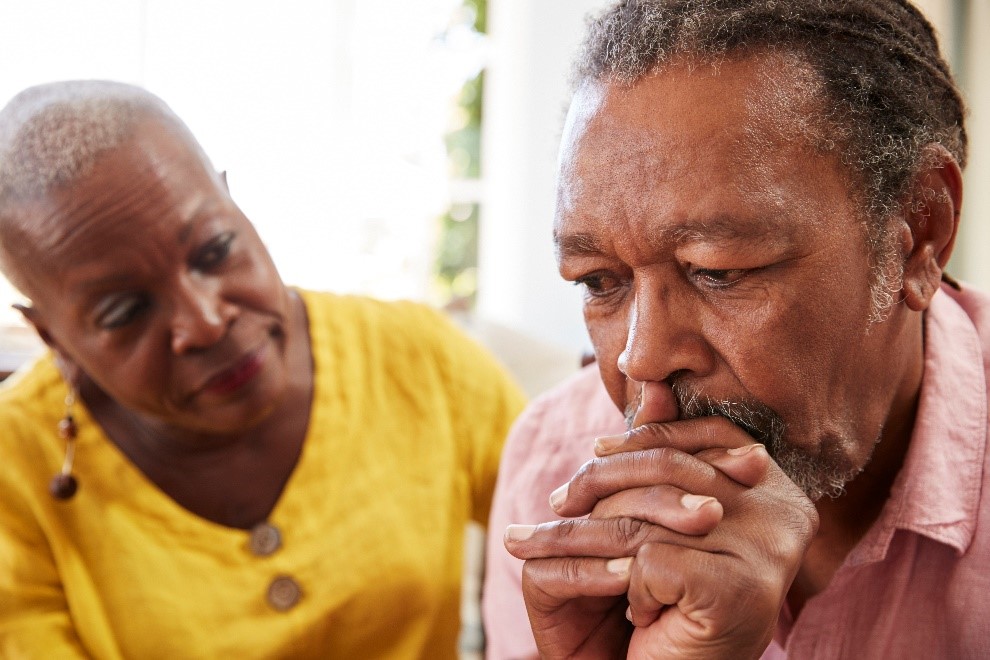Caring for a Loved One with Alzheimer's
Learning that a loved one has Alzheimer’s is heartbreaking and transitioning to a new normal isn’t easy. Not only are you coping with your own emotions, but you’re also navigating how best to provide care and safety to your loved one. Some days, you may feel overwhelmed with all the information and new routines. Other days you experience bouts of depression or defeat, feeling you’re not doing enough for your loved one.
Whatever you’re feeling from day to day, know you’re not alone in your journey. According to the Alzheimer’s Association, more than 5.8 million Americans are living with Alzheimer’s and it accounts for nearly 80% of all dementia cases. With no cure, it’s a challenging disease for families to go through, but with the proper knowledge and techniques, you can help your loved one continue to live a quality life.
What is Alzheimer’s
Alzheimer’s is a brain disease that affects a person’s memory and behavior. It’s a progressive disease that typically starts in people 65 years of age and older and is the most common form of dementia. Alzheimer’s is also a digressive disease, meaning symptoms continue to get worse over time. At this time, there is no cure for Alzheimer’s, and it is the sixth leading cause of death in the United States.
Signs and Symptoms of Alzheimer’s
According to the Alzheimer’s Association, one of the earliest signs of Alzheimer’s is when an aging loved one finds it challenging to remember new information. Symptoms of the disease become more evident and severe as it progresses in the brain. Common symptoms for those with late Alzheimer’s can include serious confusion, memory loss, behavior change, disorientation and sometimes an inability to speak, walk or swallow.
Since Alzheimer's is a slowly progressive brain disease, it may take years before symptoms are noticeable. In fact, a report from the Alzheimer’s Association says some patients may take up to 20 years before their symptoms emerge. Nearly two-thirds of those with Alzheimer’s in America are women, and African Americas have a twice as likely chance as white Americans to develop the disease.
Tips for Caring for a Loved One with Alzheimer’s
Caring for a loved one with Alzheimer’s puts you and your family in an overwhelming situation as you navigate how to provide the best care. Here are some tips to help you navigate the ins and outs of becoming a caregiver.
- Educate yourself. Caring for a loved one with Alzheimer’s requires a different skillset then caring for a typical aging senior. To understand how best to care for your loved one, take some time to educate yourself about Alzheimer’s and the types of accommodations your loved one may need. Check out trusted resources such as the Alzheimer’s Association and Alzheimer’s Foundation of America. A better understanding of what your loved one is dealing with will help you prepare for your future with them as a caregiver.
- Be patient. Many people with Alzheimer’s don’t understand that they have Alzheimer’s, especially in the early stages. They can be confused and scared and it’s important to remain patient with them. Reassure them that it’s okay if they can’t remember something or if they need extra time to complete a task.
- Involve your loved one in establishing a routine. There’s a lot of uncertainty with Alzheimer’s, so having routines helps both you and your loved one know what’s expected each day. Make sure to involve your loved one in establishing the routine. Don’t overwhelm them with choices, but you can give them an opportunity to decide between two options or verify with them that they like the routine you’ve set up.
- Keep tasks and instructions simple. Because Alzheimer’s affects the brain, it’s best to provide simple instructions when asking your loved one to do something. Instead of giving them multiple things to do at once, give them a task at a time so they can better focus on what they’re doing.
- Take time for yourself. Being a caregiver, whether it’s full-time or part-time, to someone with Alzheimer’s can be exhausting. To provide the best care to your loved one, it’s important to remember to also care for yourself. Home care providers, such as Visiting Angels offer services to help families caring for someone with Alzheimer’s.
How Visiting Angels Can Help
At Visiting Angels Buckhead Atlanta, we understand how important safety and quality care are to you and your family. Our professional caregivers are knowledgeable about memory care and trained through specialized educational programs created with the help of the Alzheimer’s Foundation of America. We provide assistance with everything from transporting your loved one to doctor’s appointments to running errands and helping with medication reminders. We can also provide bathing and personal grooming assistance as well as meal preparation and light housekeeping. In addition to helping your loved one navigate their day-to-day life; we also offer support to families of loved ones with Alzheimer’s by providing resources to help you feel more comfortable caring for your loved one.
We currently provide services to families in Buckhead, Brookhaven, Decatur and throughout the Atlanta area. If you’re interested in learning more about how a Visiting Angels caretaker can help your loved one, please give us a call at 404-358-5877. You can also view our website to learn more about our Alzheimer’s care services.
